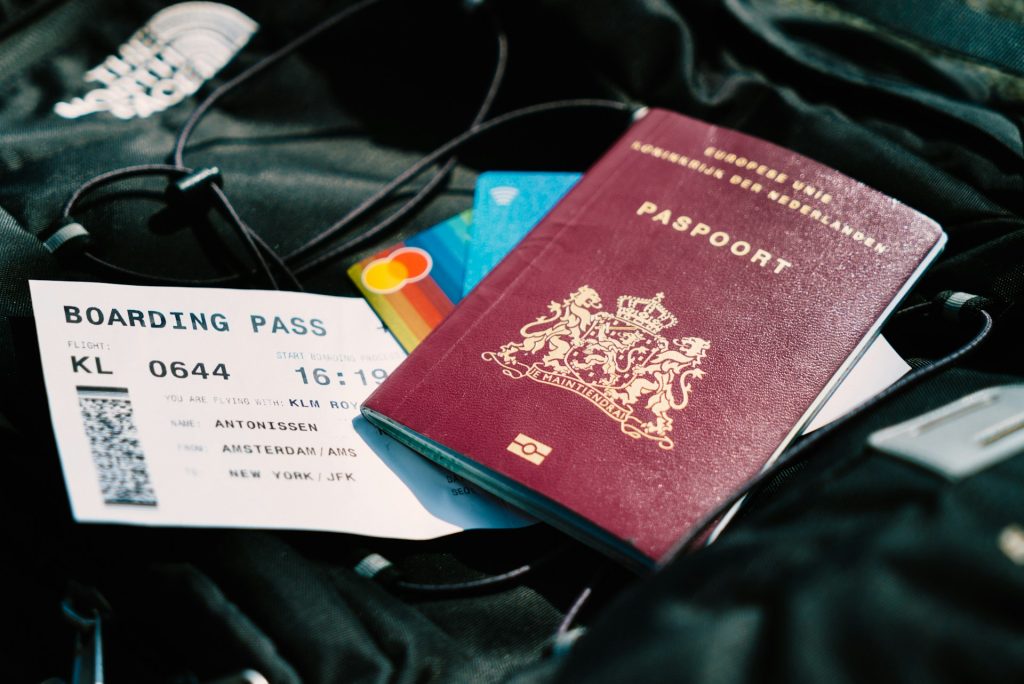
Image Source: unsplash.com
Your passport color might seem like a trivial detail, but it can dramatically impact how you’re treated abroad. From visa-free access to airport security interactions, passport privilege creates an uneven playing field in global mobility. This hidden form of discrimination affects millions of travelers, determining who moves freely and who faces barriers. Understanding passport hierarchy isn’t just academic—it reveals how colonial legacies and economic power continue shaping our world today.
1. The Passport Hierarchy: Not All Documents Are Created Equal
The concept of “passport privilege” isn’t discussed enough in travel circles. Countries like Japan, Singapore, and several European nations consistently top the Henley Passport Index, granting their citizens visa-free access to 190+ countries. Meanwhile, citizens from Afghanistan, Iraq, and many African nations can freely enter fewer than 40 countries without advance permission.
This disparity isn’t random. The most powerful passports typically belong to wealthy, predominantly white nations with colonial histories. The least powerful belong to colonized countries, experienced conflict, or faced ongoing economic challenges.
When travelers from privileged passport countries enter foreign borders, they’re often welcomed with minimal scrutiny. Those with “weaker” passports face extensive questioning, documentation requirements, and sometimes outright suspicion, regardless of their individual qualifications or intentions.
2. The Financial Burden of Passport Inequality
Passport discrimination creates significant financial barriers. Travelers with restricted passports must often pay substantial visa fees for each country they wish to visit. According to research from the African Development Bank, African travelers can access only about 27% of global destinations without a visa, compared to 85% for Western travelers.
These costs extend beyond application fees:
- Time off work to attend visa interviews
- Travel to distant embassies or consulates
- Mandatory travel insurance
- Proof of accommodation bookings
- Bank statements showing “sufficient funds”
For many, these requirements make international travel financially impossible, regardless of personal wealth. A middle-class professional from Nigeria might spend weeks and thousands of dollars securing visas for a business trip that their British counterpart can make with just a passport and plane ticket.
3. The Psychological Impact of Border Discrimination
The emotional toll of passport discrimination remains largely undiscussed. Travelers with “weaker” passports often report feelings of humiliation, anxiety, and resignation when crossing borders. Many describe elaborate preparation rituals—dressing formally, carrying excessive documentation, and rehearsing answers to anticipated questions.
A 2022 study published in the Journal of Travel Research found that repeated experiences of border discrimination can lead to travel avoidance, internalized inferiority, and even impacts on national identity and self-worth.
This psychological burden extends to diaspora communities. Even naturalized citizens with “powerful” passports report anxiety at borders, where racial profiling can override document privilege. The intersection of passport discrimination with racial and religious profiling creates particularly challenging experiences for many travelers of color.
4. How Digital Nomadism Reinforces Passport Privilege
The growing digital nomad movement often overlooks its foundation in passport privilege. Social media celebrates location-independent lifestyles without acknowledging the passport hierarchies that make such mobility possible primarily for citizens of wealthy nations.
While digital nomads from the US, UK, or Australia can often enter countries on tourist visas and work remotely with minimal scrutiny, those from countries like Pakistan, Bangladesh, or Kenya face extensive visa requirements and questioning about their intentions.
This disparity has created a two-tiered system where global mobility is marketed as accessible to all while remaining structurally limited to those with privileged passports. The pandemic further widened this gap, with travel restrictions disproportionately affecting those from countries with limited diplomatic leverage.
5. Breaking Down Barriers: The Path Forward
Some positive changes are emerging. Countries like Georgia, Estonia, and Portugal have introduced digital nomad visas that evaluate applicants based on income rather than nationality. Regional blocs like ECOWAS in West Africa and ASEAN in Southeast Asia have implemented freedom of movement agreements for their citizens.
Technology may also help level the playing field. Digital identity verification systems could potentially reduce human bias in border control, while blockchain-based digital credentials might create more objective evaluation standards.
Individual travelers can contribute by acknowledging passport privilege, supporting visa equality advocacy organizations, and choosing to spend tourism dollars in countries that treat all visitors with dignity, regardless of passport origin.
The Invisible Backpack of Passport Privilege
Just as racial privilege operates invisibly for those who have it, passport privilege remains largely unnoticed by its beneficiaries. Recognizing this system isn’t about guilt but awareness—understanding that global mobility isn’t merely a function of individual merit but of geopolitical power structures with deep historical roots.
As we work toward a more equitable world, acknowledging passport discrimination represents an important step in dismantling systems that determine human value and freedom based on accidents of birth.
Have you ever experienced or witnessed passport discrimination while traveling? How did it affect your perspective on global mobility?
Read More
Why Your GPS Could Be the Reason You Get Robbed While Traveling
10 Happenings That Suggest White Flight Is Happening in Your Town